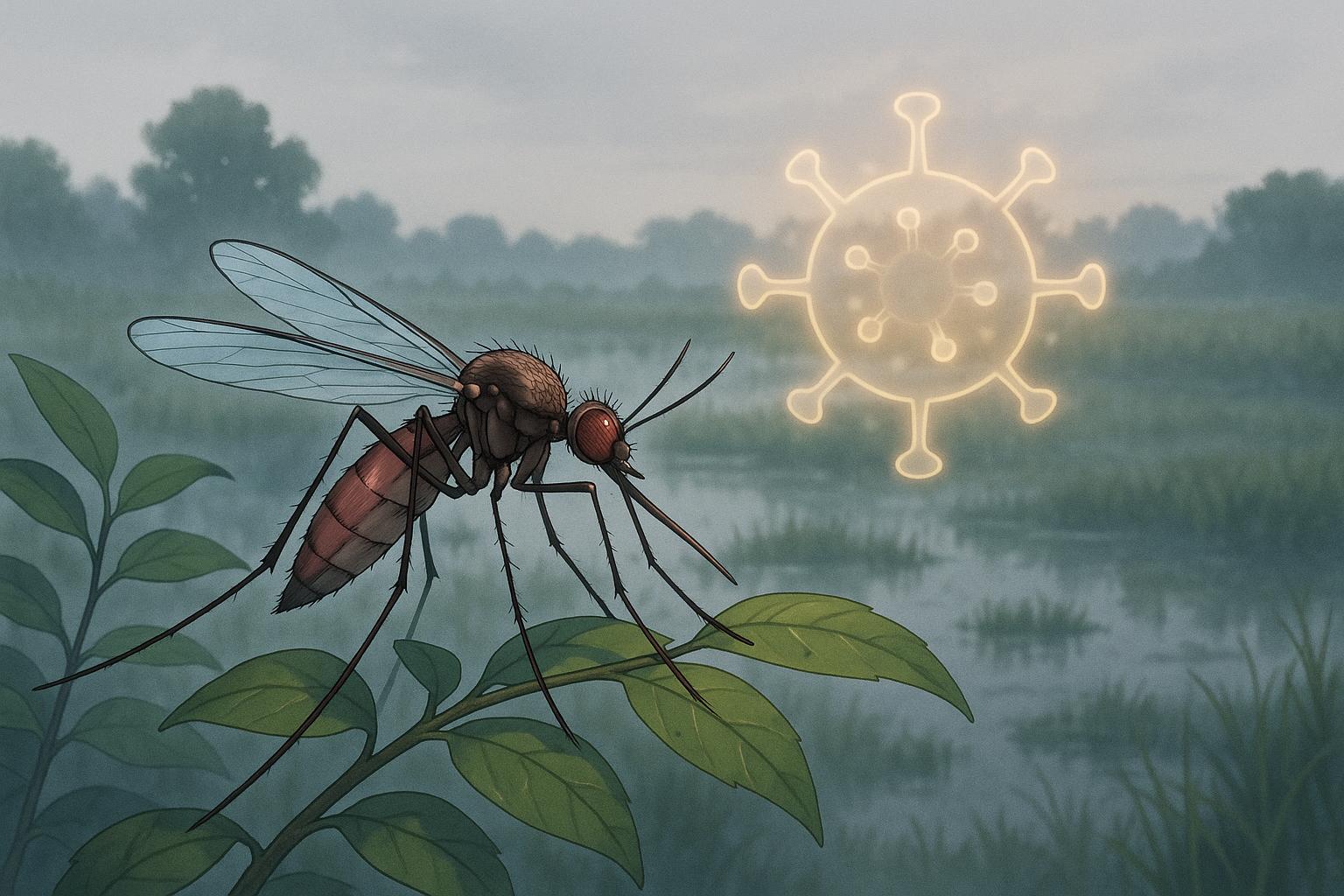A recent discovery in Nottinghamshire has raised awareness about a significant public health concern as the West Nile virus has been detected in mosquitoes for the first time in the UK. Samples collected in July 2023 yielded viral genetic material, although the UK Health Security Agency (UKHSA) has asserted that the public risk remains very low due to the lack of evidence suggesting local circulation of the virus among birds or mosquitoes. This finding has prompted increased surveillance and control measures aimed at understanding mosquito activity across Britain, particularly in wetland areas like those in Retford.
Prof Jonathan Ball, a prominent virologist and director of the Centre for Global Virus Research at the University of Nottingham, has indicated that climate change is likely to contribute to an expansion of tropical diseases further north. He highlighted that as temperatures rise, the habitats and active seasons for disease-carrying mosquitoes such as Aedes albopictus are enlarging. In the context of heightened temperatures, there has been a notable increase in mosquito-borne illnesses in various regions, including significant rises in cases of dengue and Zika across Europe. Notably, the United States recently reported its first locally transmitted malaria cases in two decades, underscoring a worrying trend in infectious diseases linked to climate variations.
Despite the detection of the West Nile virus, Prof Ball advised that the public should not be too alarmed but should remain informed. He mentioned, “We need to be aware” as these viruses, collectively known as flaviviruses, are primarily adapted to tropical regions but are gradually expanding due to climate factors. It is crucial to prevent mosquito bites by employing protective measures such as wearing appropriate clothing and using insect repellents. The ongoing surveillance project in Gamston, conducted in collaboration with local councils, aims to enhance monitoring along the River Idle, a key area for mosquito population control.
Researchers assert that the ramifications of climate change on mosquito behaviour are profound. While some insect populations are declining due to changing climate conditions, those that act as vectors for diseases are thriving, complicating efforts to manage public health. With an estimated increase in mosquito activity by 39% in certain low-income countries, understanding these dynamics is vital for mitigating potential health crises. The emergence of such diseases, previously limited to specific geographies, poses challenges that architects of public health policy must urgently address.
Furthermore, a study developed by the UK Centre for Ecology & Hydrology has modelled the risks associated with West Nile virus outbreaks in the UK, indicating that while immediate risks are low, the likelihood of future outbreaks will rise with increasing temperatures over the next two to three decades. This consideration underlines the importance of preparing healthcare systems and raising public awareness about symptoms and risk factors for those most vulnerable to severe illness.
With climate change continually altering ecosystems and food chains, the future landscape of infectious diseases in the UK and beyond will likely be shaped by these changes. As global temperatures rise, ensuring robust public health measures and fostering interdisciplinary cooperation to study pathogen behaviours will be essential in navigating this evolving threat.
A proactive approach that includes education on prevention, increased surveillance, and timely responses will be vital in safeguarding against the repercussions of climate-induced disease patterns that threaten human health and ecological balance.
Reference Map:
- Paragraph 1 – [1], [2]
- Paragraph 2 – [2], [4]
- Paragraph 3 – [1], [2], [5]
- Paragraph 4 – [3], [4], [6]
- Paragraph 5 – [5], [6]
Source: Noah Wire Services
